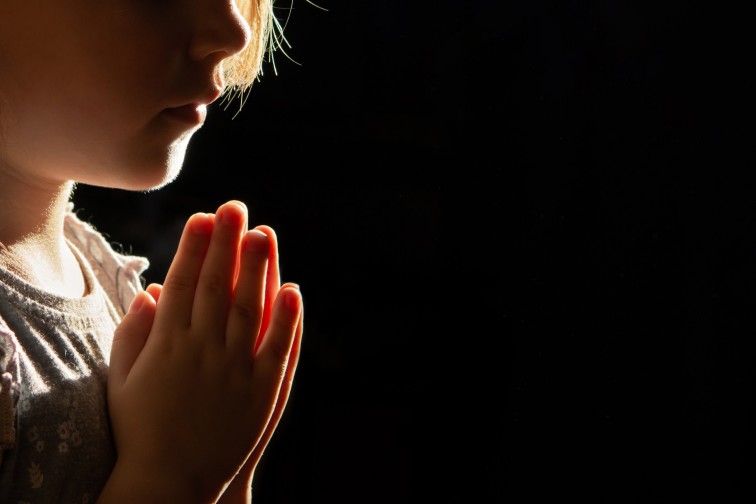 Recently, we’ve been working through several books that are seemingly unconnected—other than being newly consumed by yours truly. However, as I considered their many messages, I began to see some powerful themes. We began with Wilhelm Röpke’s “A Humane Economy,” the featured book of the IFWE’s book club last month. Then we moved on to Peter Greer’s latest book, “The Spiritual Danger of Doing Good.” As promised, but a little overdue, I’d now like to discuss Matthew Anderson’s new book, “The End of Our Exploring.”
Early in his book, Anderson makes a very compelling point by challenging the presumed neutrality of our questions:
Recently, we’ve been working through several books that are seemingly unconnected—other than being newly consumed by yours truly. However, as I considered their many messages, I began to see some powerful themes. We began with Wilhelm Röpke’s “A Humane Economy,” the featured book of the IFWE’s book club last month. Then we moved on to Peter Greer’s latest book, “The Spiritual Danger of Doing Good.” As promised, but a little overdue, I’d now like to discuss Matthew Anderson’s new book, “The End of Our Exploring.”
Early in his book, Anderson makes a very compelling point by challenging the presumed neutrality of our questions:
[Questions] come from somewhere and take us somewhere. They slant our perspectives in particular directions and make some answers more plausible than others. While we might like to exonerate ourselves from the burden of responsibility for them, in the long exploration into the world around us, there are no neutral questions. (emphasis original)
This called to mind Greer’s warning that “our ability for self-deception is greater than we realize.” Similarly, Röpke discusses our human tendency to be tricked by our perspectives when we are pursuing truth:Just as much as fear, another universal human failing is a tendency to allow the prospect of advantages or the threat of disadvantages to deflect one from the pursuit of “true” facts and, even more, from the free announcement of facts recognized as “true.”
C.S. Lewis’s thoughts about perspective were also brought to bear by Greer who quotes Lewis saying, “a proud man is always looking down on things and people; and, of course, as long as you are looking down, you cannot see something that is above you.” Anderson, Röpke, Greer and Lewis are all conveying the same message that we cannot take to heart with enough alacrity—that in our pursuit to worship God by doing good, we must keep our focus on God and not our feeble, human attempts at goodness. The pursuit of good necessarily evokes questions, to which Anderson says:Questioning well is not a task to be marked off in our plan for self-improvement. It has no formula to apply, no technique that can be mastered. It is a form of life, a practice that encompasses and entangles our hearts, minds, and bodies. Which means that we will live ourselves into the answers only if we live the questions well, orienting them around the good and the true that are revealed in the person of Jesus.
When we don’t orient our doing of good deeds around a pursuit of Jesus—the Way, the Truth and Life—we develop hero complexes. [pullquote] A proud man is always looking down on things and people… and as long as you’re looking down, you can’t see something above you.[/pullquote] “You and I make lousy superheroes and lousier saviors,” Greer admonishes. But that is exactly what we continually attempt to be through our lives, and particularly through our public policy. Do-gooders continue to promote programs that completely defy economics (rent control, anti-price gouging laws, minimum wages, etc.) because they want to be seen as caring for the poor. For many, they probably believe they are actually helping the poor because they can see their actions, but their attention is not focused long enough to see the results. To them I would recommend Frédéric Bastiat’s “What Is Seen and What Is Not Seen,” because it is the unseen that is their undoing. Agreeing with Greer that we are not superheroes or saviors, Röpke connects this to public policy, saying we are neither heroes nor saints:If the collectivist economy is to function, it needs heroes or saints, and since there are none, it leads straight to the police state. Any attempt to base an economic order on a morality considerably higher than the common man’s must end up in compulsion and the organized intoxication of the masses through propaganda… The ordinary man is not such a homo æconomicus, just as he is neither hero nor saint. The motives which drive people toward economic success are just as varied as the human soul itself.
Nearing his conclusion Anderson remarks on page 186 that “certainty is a charlatan, doubt a deceiver.” A poignant reminder that it is neither the asking of questions nor the attaining of answers that ought to be our goal. Christ is our goal. Bringing this discussion back around to where it started two blog posts ago, Bernard Berenson, an art historian of the early 20th century, lamented that it is boredom that threatens our civilization. Anderson similarly concludes, in a paragraph which I am almost convinced was written by C.S. Lewis himself, that we are in danger of being childish.We young in our pursuits are ever in danger of merely being childish. We are not yet strong enough to be childlike. This is for the wise, for those who have gone before us, who have come to their end and found themselves for the first time there, the end that is always new beginning and a renewing of our exploration.
I proposed that part of what ails our modern society is our belief that we have all of the answers to sickness, poverty and social discord, and that we do not know how to question and doubt what we think we know about our faith. And for the last several weeks I have laid out my case, using the words of those far smarter than I. So, let us not be bored, having given up on our exploring because our pride has so skewed our perspective that we redefine the meaning of success. Let us not set our standards for morality so high without tempering them by asking good questions which are centered on Christ. Doing so will ultimately lead to failure, creating a void in our society in which a totalitarian state can flourish. Our pride eventually gives way to the certainty that we are superheroes, and that, as Anderson says, is a charlatan. But through good questioning, we can become stronger, filling our chests with virtue and enterprise instead.


